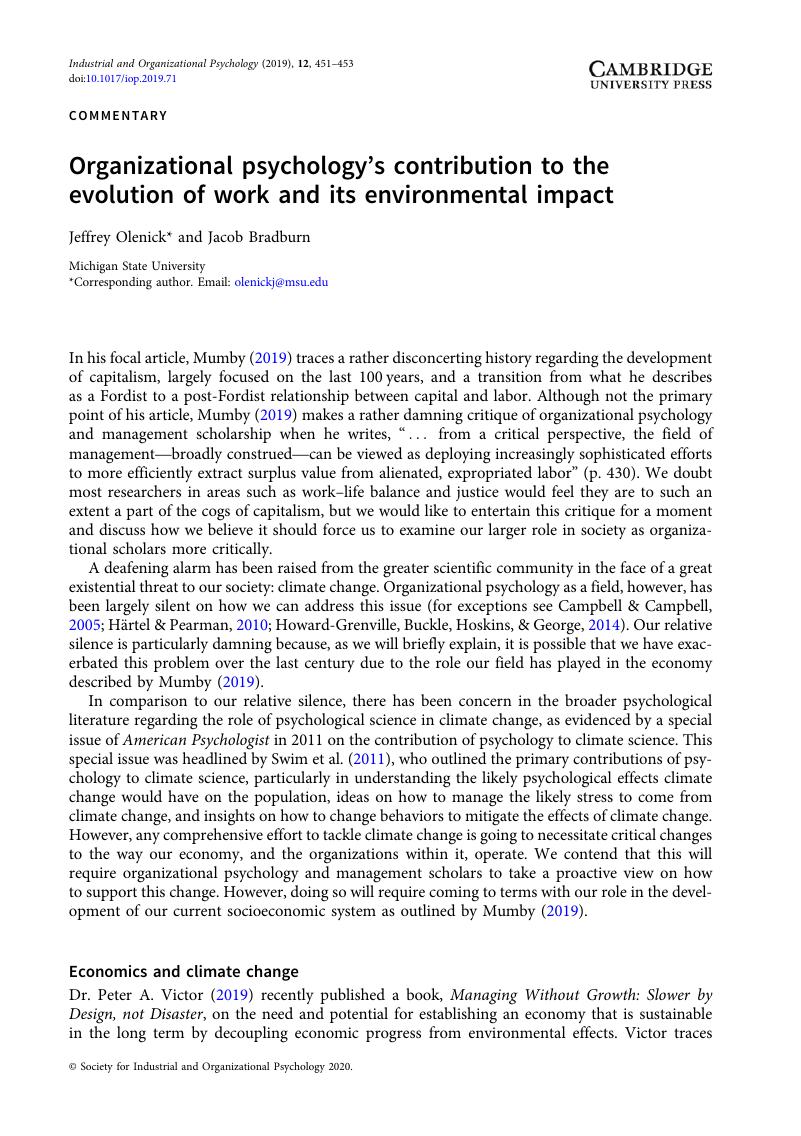Crossref Citations
This article has been cited by the following publications. This list is generated based on data provided by Crossref.
Olenick, Jeffrey
Ryan, Ann Marie
and
Kuljanin, Goran
2021.
Basic incomes and the dynamics of wealth accumulation, individual development, and employment opportunities.
Industrial and Organizational Psychology,
Vol. 14,
Issue. 4,
p.
563.



